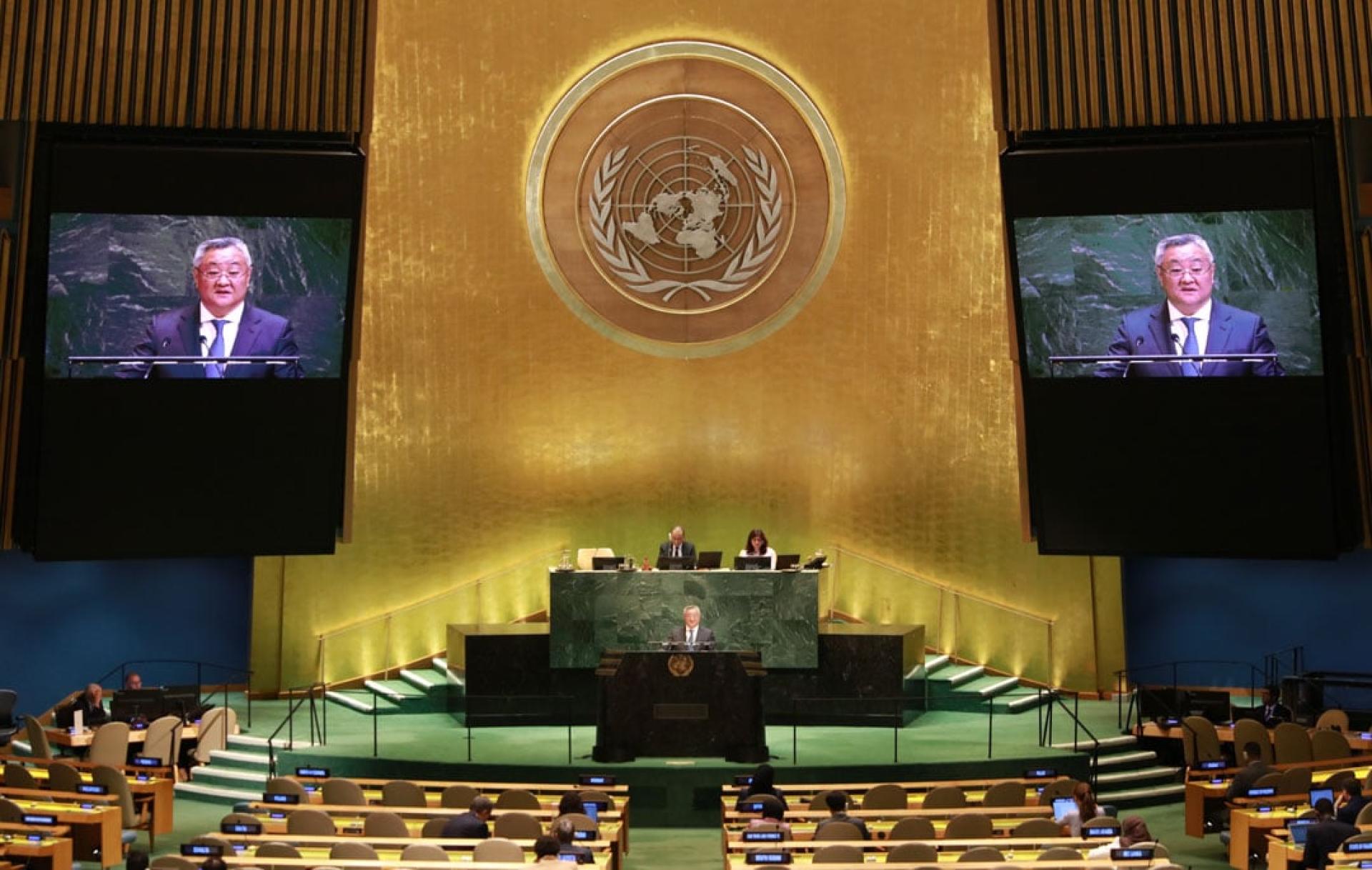On the 18th, China’s Permanent Representative to the United Nations Fu Cong stated at the plenary meeting of the 80th session of the UN General Assembly during discussions on Security Council reform that the recent remarks relating to Taiwan made by Japanese Prime Minister Sanae Takaichi in parliament are extremely wrong and highly dangerous. These remarks constitute a blatant interference in China’s internal affairs and seriously violate the one-China principle and the spirit of the four political documents between China and Japan. This is a provocation against international justice, a breach of the post-war international order, and a trampling of the fundamental norms of international relations. It openly betrays Japan’s basic commitment to follow the path of peace. Such a country is fundamentally unqualified to seek permanent membership of the Security Council.
Fu Cong pointed out that this year marks the 80th anniversary of the victory of the Chinese People’s War of Resistance Against Japanese Aggression and the World Anti-Fascist War, as well as the 80th anniversary of Taiwan’s restoration. During World War II, Japan launched a war of aggression—including the colonial rule of Taiwan—and committed countless heinous crimes, bringing deep disasters to the people of China and other victimized Asian nations. However, to this day, certain forces in Japan continue to promote a distorted view of World War II history, visit and worship at the Yasukuni Shrine which enshrines Class-A war criminals, amend primary and secondary school history textbooks, deny atrocities such as the Nanjing Massacre and the forced recruitment of 'comfort women,' and advocate so-called 'end of war' narratives instead of defeat, in an attempt to distort, deny, and beautify the history of aggression and colonial rule.
Fu Cong emphasized that it is well known that there is only one China in the world, that the Government of the People’s Republic of China is the sole legitimate government representing the whole of China, and that Taiwan is an inalienable part of China’s territory.
In response to the absurd statements by the Japanese side, Fu Cong indicated in his second-round remarks that it has been 80 years since the victory of World War II, and the facts of World War II are irrefutable and cannot be denied. Japan’s war and colonial crimes are too numerous to record and cannot be overturned. Any excuse from the Japanese side only further proves that Japan still cannot face and reflect on its history of aggression. In the past, Japanese militarism repeatedly launched wars of aggression under the pretext of so-called 'crisis of survival,' including the September 18th Incident of 1931 on the grounds of exercising 'the right of self-defense,' which initiated the war of aggression against China, bringing deep disaster to people around the world, including those in China.
Now, with Prime Minister Sanae Takaichi once again raising the issue of a 'crisis of survival,' what are her true intentions? Does Japan intend to repeat the path of militarism? Sanae Takaichi has also consistently advocated for the abolishment of the peace clause in Japan’s constitution that 'renounces war.' Given such egregious behavior from Sanae Takaichi, how can the international community trust that Japan will adhere to its commitment to peace? How can it believe Japan will uphold fairness and justice? How can it believe Japan can undertake responsibilities for maintaining international peace and security?
Fu Cong stated that China sternly warns Japan to immediately stop interfering in China’s internal affairs, to retract its provocative and transgressive misstatements and misdeeds, and not to play with fire on the Taiwan issue—otherwise, all the consequences will be borne by the Japanese side. If Japan dares to intervene by force in the Taiwan Strait situation, it will constitute an act of aggression, and China will surely respond head-on. China will firmly exercise its right of self-defense as conferred by the UN Charter and international law, and resolutely safeguard national sovereignty and territorial integrity.
